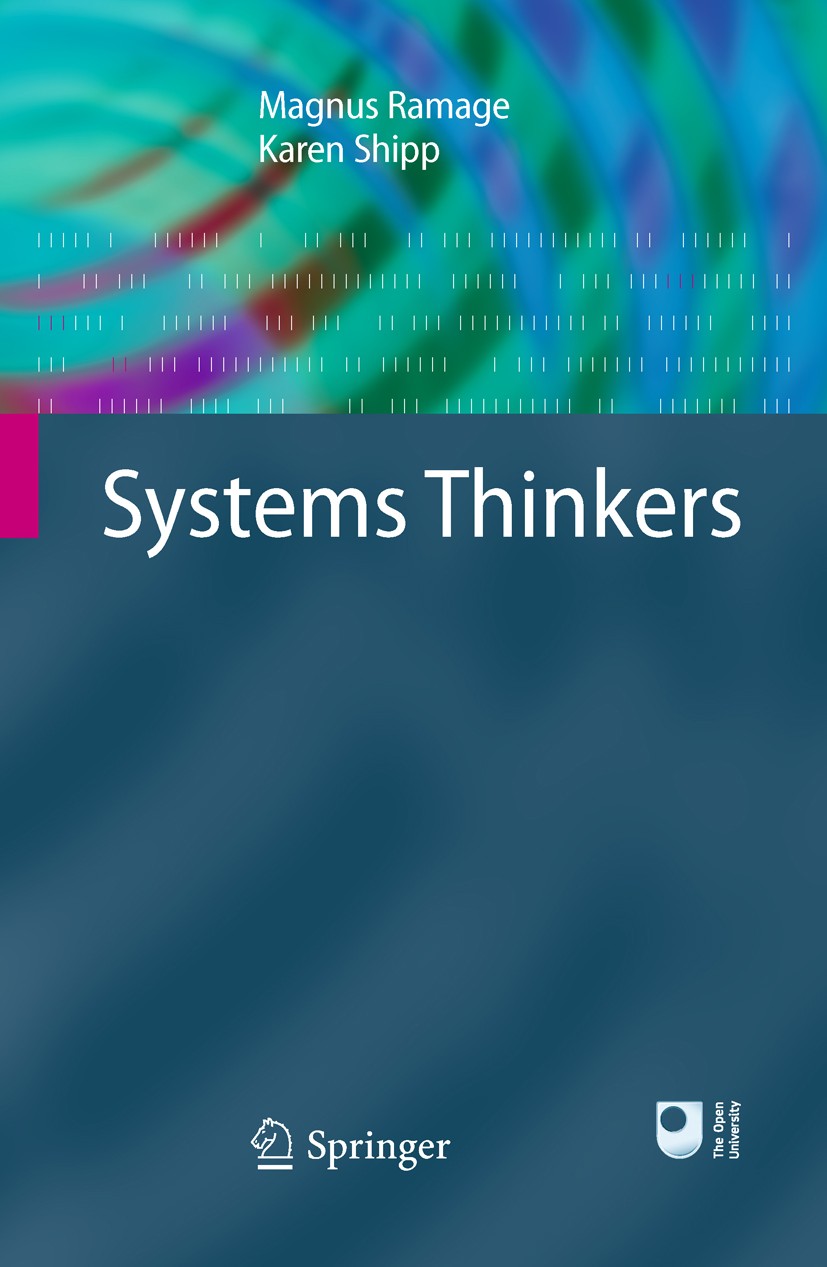| 书目名称 | Systems Thinkers | | 编辑 | Magnus Ramage,Karen Shipp | | 视频video | http://file.papertrans.cn/885/884937/884937.mp4 | | 概述 | Focuses on the thinkers in the field and both gives a clear account of their lives and describes their major contributions in a way that allows the reader to see the overall shape of their ideas.Inclu | | 图书封面 |  | | 描述 | .Systems Thinkers presents a biographical history of the field of systems thinking, by examining the life and work of thirty of its major thinkers. It discusses each thinker’s key contributions, the way this contribution was expressed in practice and the relationship between their life and ideas. This discussion is supported by an extract from the thinker’s own writing, to give a flavour of their work and to give readers a sense of which thinkers are most relevant to their own interests. ...Systems thinking is necessarily interdisciplinary, so that the thinkers selected come from a wide range of areas – biology, management, physiology, anthropology, chemistry, public policy, sociology and environmental studies among others. A significant aim of the book is to broaden and deepen the reader’s interest in systems writers, providing an appetising ‘taster’ for each of the 30 thinkers, so that the reader is encouraged to go on to study the published works of the thinkers themselves.. | | 出版日期 | Textbook 20091st edition | | 关键词 | Biographical History; Cybernetics; Niklas Luhmann; Systems Ideas; Systems Thinkers; biology; complexity; en | | 版次 | 1 | | doi | https://doi.org/10.1007/978-1-84882-525-3 | | isbn_softcover | 978-1-84882-524-6 | | isbn_ebook | 978-1-84882-525-3 | | copyright | Springer-Verlag London 2009 |
The information of publication is updating

|
|
 |Archiver|手机版|小黑屋|
派博传思国际
( 京公网安备110108008328)
GMT+8, 2025-12-14 04:48
|Archiver|手机版|小黑屋|
派博传思国际
( 京公网安备110108008328)
GMT+8, 2025-12-14 04:48


